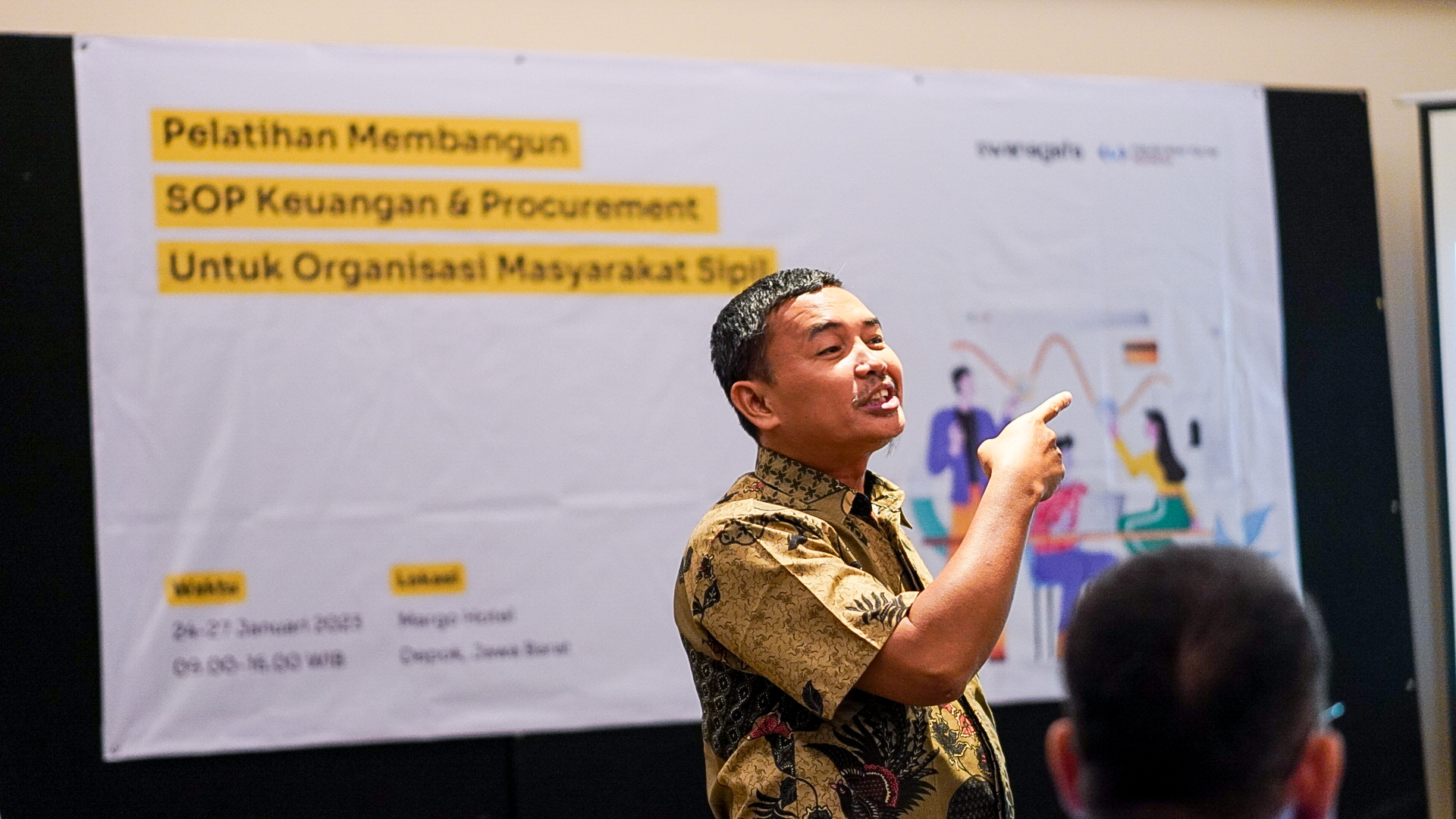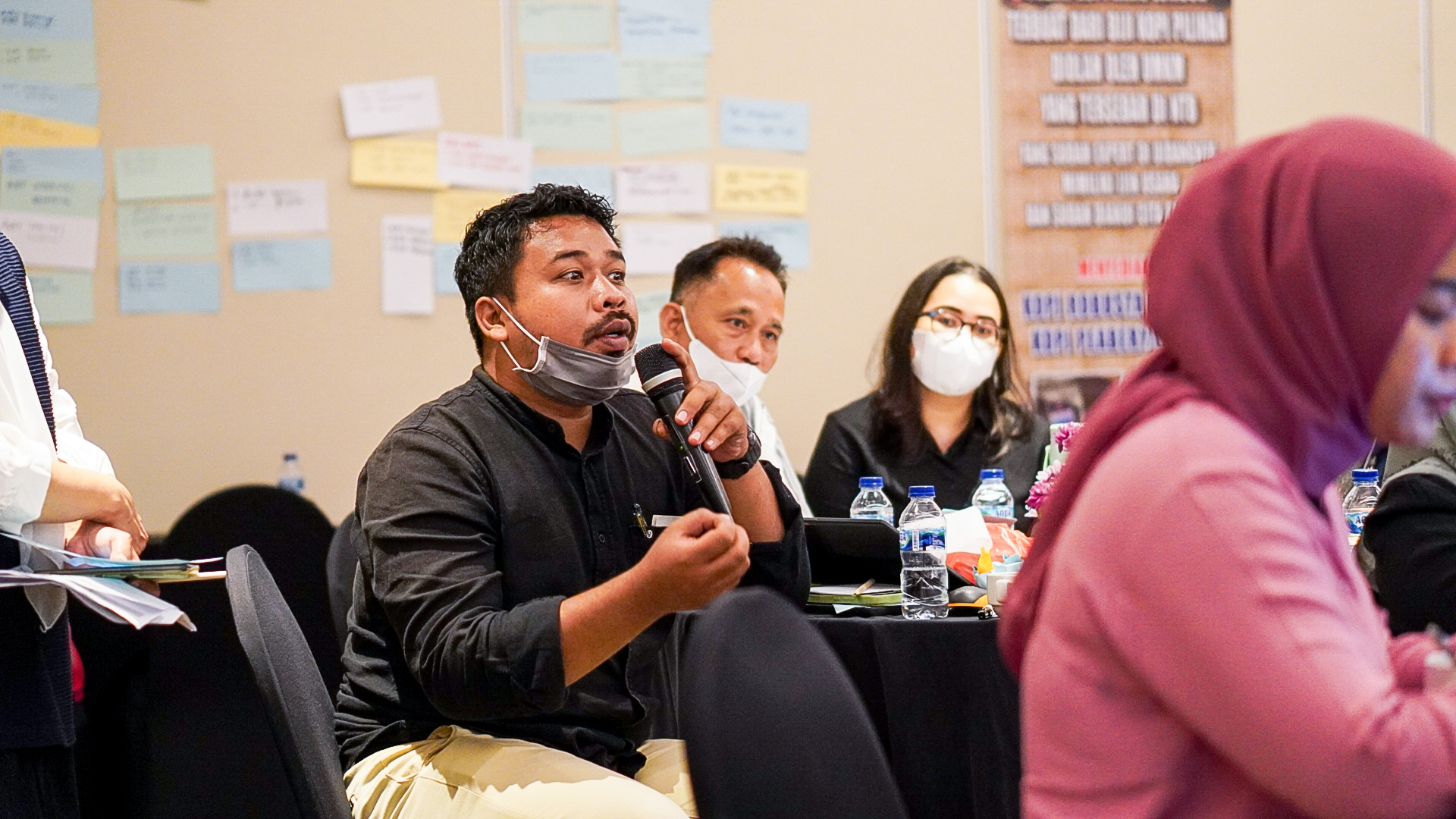Depok – To require one of the important aspects in the management of non-profit organizations, namely the presentation of financial reports that have been audited regularly, Publish What You Pay (PWYP) Indonesia conducted a training entitled “Preparation Financial Audits for Non-profit Organizations” on January 25, 2023, in Depok, West Java. The training, which aims to increase capacity and support member organizations of the PWYP Indonesia coalition in facing the Financial Audit, was attended by 22 organizations and presented by Coach Hadi Prayitno and Coach Sri Sudarsih from SWANAGATA.
As background on Why Financial Audit is important for non-pofit organizations? First, the mandate of Law Number 14 of 2008 concerning Public Information Disclosure (UU KIP), that institutions who manage Public Funds are required to present Financial Reports to the Public. Second, Donor Agencies generally provide signs and rules related to the financial evaluation of grant funds through audits. Third, Law Number 28 of 2004 concerning Foundations and Law Number 17 of 2013 concerning CSOs require Organizations to conduct audits if they meet the requirements. Fourth, stakeholders and parties interested in the Organization will need a second opinion from an independent party to believe in the integrity of the organization’s management accuracy and fairness of financial reporting. Fifth, the audit opinion is one of the measuring tools for assessing the performance of the Finance department in preparing and presenting financial reports in accordance with the standard format and the provisions that govern it.
This training provides material from the introduction of audit types, stages of audit implementation, types of audit opinions, and audit reporting. Also, what material is prepared in the face of an audit, from selecting auditors, preparing the documents needed, and conducting internal reviews to how to discuss the draft audit. Participants were also given examples of audit findings often found in several non-profit organizations.
Participants were quite enthusiastic about participating in this training. In addition to the substance of the material being relevant to the needs of the organization, participants were also invited to participate in practice and simulate preparing an audit. This training is part of the Strengthening the Capacity of Institutions and Coalitions for Transparent, Fair and Sustainable Reform of Extractive Resources Governance Program, which is part of the BUILD Program supported by the Ford Foundation and the Directorate General of Regional Development (DG Bina Bangda) of the Ministry of Home Affairs.

